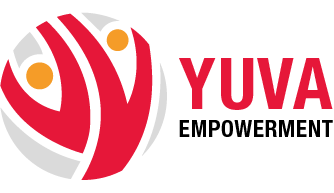Creative thinking is the ability to come up with unique, original solutions. Also known as creative problem-solving, creative thinking is a valuable and marketable soft skill in a wide variety of careers. Creative thinking doesn’t just make you a better employee; it also makes you a better parent, student, and leader, too. Creativity is the ability to generate a thought or an idea that is completely new, appealing, and useful. Developing your creative thinking skills is highly beneficial for any field of work.

Here are some major benefits of creative thinking:
1.Improved problem-solving capabilities:
Developing your creative thinking abilities can help you solve a wide variety of problems faster. Improvement on problem-solving for not only work-related matters but also those in your personal life. However difficult the situation is, your brainstorming ideas always have the query solved. Solve the knots, challenge yourself that this must sort out. Come up with a solution and also be prepared for how the consequences should be solved.
2.Stronger interpersonal connections:
Developing new ideas together can strengthen bonds and help you combine ideas to create something truly innovative. You being around people, objects or hobbies will mold your thinking. You know that positive people reflect positive vibes and creative thinking lies within a positive person. Have connections that when you come up with an idea you could get honest feedback from someone. Also when you come up with a new idea keep it in confidence so that you can build a connection with your listener.
3.Heightened productivity:
Taking a moment and engaging in a creative thinking strategy can renew your motivation. Creative thinkers know that previous mistakes should be cleaned and then they’ll get ideas further. Try doing creative things, make some diy’s, keep your brain engaged in something new always. Be a good listener when someone is keeping their points, stay active and reply to that. Learning new things is being productive.
4.Higher self-awareness:
Creative thinking allows you to try on perspectives that you may not have considered before. Higher workplace involvement in daily activities and engagement, which is beneficial to a healthier environment. In higher positions this skill is a must. If you’re a committee member in college you know that your brain needs to brainstorm ideas. Same goes at the workplace too. You want to get highlighted then be an active one and involve in meetings and conversations to expand your knowledge of creative thinking.Creative Thinking Examples
Creative thinking includes the process of innovative problem-solving — from analyzing the facts to brainstorming to working with others. Examples of these skills include analytical skills, innovation, and collaboration.
Analytical Skills
Analytical skills are problem-solving skills that help you sort through facts, data, and information to develop rational solutions. These skills aid you in the first part of the creative thinking process as you brainstorm and start to generate ideas.
Analytical skills include:
- Data analysis
- Research
- Forecasting
- Reporting
- Interpreting
- Communication
Innovation
Innovation is the ability to come up with something new; however, you don’t need to develop the first flying car to be an innovative thinker. “Something new” at work might mean a method you haven’t tried before or experimenting with an unfamiliar process. Innovators in the workplace aren’t afraid to step away from tradition and explore something original, even if it might fail.
Innovation skills include:
- Risk-taking
- Brainstorming
- Imagining
- Critical thinking
- Ambition
- Resilience
Ways to improve creative thinking:
Switch up Your Routine:
Routine can be a great productivity booster, but it also can get in the way of your creativity. So, switch up your routine for one project, day, or even an hour. This can be something as small as where you’re physically sitting when you do your work or something as big as your process for approaching projects. Challenging yourself to do something different will help you find creative ways to adapt to your new environment.
Find Inspiration:
Creative thinking doesn’t happen in a bubble. It’s vital to ask for others’ opinions, ideas, and feedback. Creative thinkers consider multiple perspectives and are curious about how others think. Ask your colleague about their work processes, whether it’s how they research for a client deliverable or how they approach meeting an external buyer.
Put Yourself in a Box:
Creative thinking is about “thinking outside the box,” but putting limitations on your problem-solving can help you think more freely and innovatively.

In this constantly changing and developing world, being a creative thinker is necessary. There are many challenges and competitions for us to face in the near future. Be prepared for the challengers and competitors, for there are more smarter people than you.

